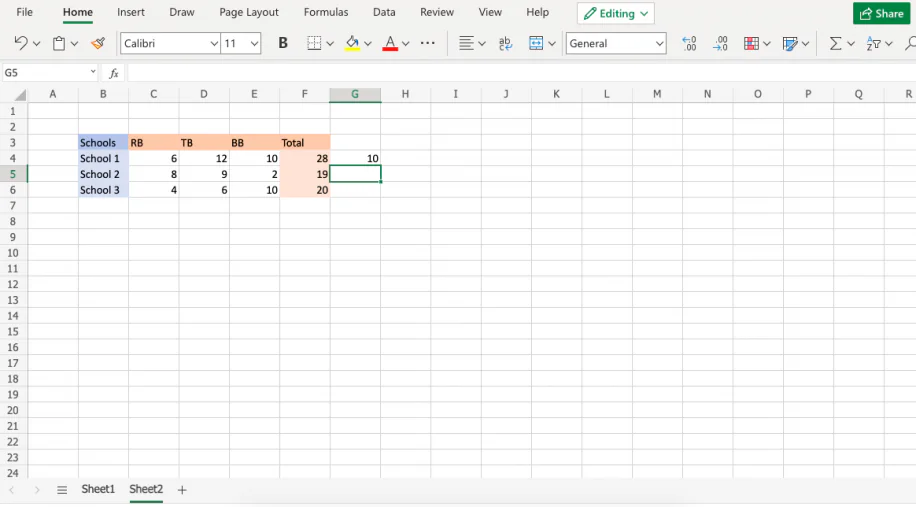Efficiently Transfer Data Between Excel Sheets

Transferring data between Excel sheets is an essential skill for anyone dealing with data analysis, financial modeling, or any task that involves juggling multiple datasets. With Excel's robust set of tools, transferring data can be done with efficiency and precision, minimizing errors and maximizing productivity. This comprehensive guide will delve into various methods to transfer data, from basic to advanced, ensuring you have the knowledge to handle data in Excel proficiently.
Manual Copying and Pasting

Before diving into advanced techniques, let’s start with the most straightforward method for those just beginning with Excel:
- Select the Data: Highlight the cells in the source sheet that you want to transfer.
- Copy: Right-click and select ‘Copy’ or press Ctrl + C.
- Navigate to Destination: Switch to the destination sheet.
- Paste: Click on the cell where you want the data to start and paste using Ctrl + V.
Using Excel’s Data Tab

For a more structured transfer, Excel provides features under the Data tab:
- Get Data: Use this to import data from other files or databases.
- Click ‘Get Data’ then choose the source type (like ‘From File’, ‘From Database’, etc.).
- Follow the prompts to import your data into your current workbook.
- Move or Copy Sheet: This allows you to move an entire sheet from one workbook to another.
- Right-click on the sheet tab, select ‘Move or Copy…’
- Choose where to place the sheet in the ‘To Book’ dropdown.
- Check ‘Create a copy’ if you want to keep the original intact.
Advanced Techniques

VLOOKUP and HLOOKUP
When you need to lookup and transfer data:
- VLOOKUP: Looks for a value in the left-most column of a range and returns a value from the same row in a specified column.
- Syntax: =VLOOKUP(lookup_value, table_array, col_index_num, [range_lookup])
- HLOOKUP: Similar but searches for data in the top row and returns values from columns.
- Syntax: =HLOOKUP(lookup_value, table_array, row_index_num, [range_lookup])
Power Query
Power Query is an Excel add-in for data transformation and preparation:
- Loading Data: Use ‘Get Data’ to load data from multiple sources.
- Transform Data: Use the Query Editor to clean, transform, and combine data from various sheets or files.
- Load into Excel: Once processed, data can be loaded back into Excel sheets or into data models.
💡 Note: Power Query works best for large datasets or when you need to perform regular data updates.
Macros
For repetitive tasks, recording a macro can automate data transfer:
- Record a Macro: Go to Developer tab, click ‘Record Macro’, and perform the data transfer.
- Assign a Shortcut: Optionally assign a keyboard shortcut for quick access.
- Modify the Code: If needed, edit the VBA code to fine-tune the macro for specific tasks.
External References
If you’re working with multiple workbooks, you can reference external sheets:
- Syntax: =‘path[filename.xlsx]Sheet1’!A1
📝 Note: Ensure the referenced workbook is open or saved in the same folder for automatic updates.
In conclusion, transferring data between Excel sheets can be performed efficiently with a range of methods suited to different user needs. From manual copying and pasting for beginners to using Power Query for large data transformations, each technique offers its own set of advantages. By understanding these methods, you can streamline your workflow, reduce errors, and make the most of Excel's capabilities for data management. Whether you're consolidating reports, performing lookups, or automating repetitive tasks, Excel provides tools to keep your data organized and accessible.
What’s the quickest way to transfer data between sheets?

+
The quickest way for simple transfers is manual copying and pasting. For more complex scenarios, using VLOOKUP or external references can save time.
Can I automate data transfer in Excel?

+
Yes, you can automate with VBA macros or by using Power Query for regular updates and transformations.
Is Power Query worth learning for basic data transfer?

+
If you’re dealing with large datasets or frequent data updates, Power Query can be very beneficial for automating and streamlining your workflow.
What if I need to reference data from a closed workbook?

+
You can use external references in formulas; however, the workbook must be closed with the appropriate syntax: =‘path[filename.xlsx]Sheet1’!A1.
How can I ensure my data transfers are error-free?

+
Use named ranges, validate your data with Data Validation, and check formulas for correct syntax. Also, consider using Excel’s built-in error checking tools.



